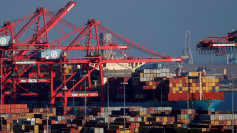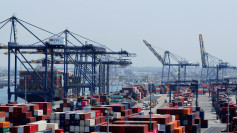Scientists have dramatically underestimated the impact rising seas will have on cities around the world, according to a research published in the journal Nature Communications. Sea levels are rising faster than expected, 150 million people are currently living in places that will be below the high-tide line in 30 years. But some Chinese experts are not so pessimistic, though they admitted global warming poses a huge challenge.
The paper, authored by Scott Kulp and Benjamin Strauss of the Princeton, New Jersey-based non-profit Climate Central, suggested that, through a more accurate way of calculating land elevation based on satellite readings using artificial intelligence, the center of East China's Shanghai and other great coastal cities in the world such as such as Mumbai and Bangkok will be under water at high tide by mid-century.
Their model paints a grim picture: whole swaths of Vietnam, Thailand, coastal China, India, Egypt and Iraq swallowed by ocean. Where previous estimates showed one percent of Thailand's population would live in areas under water by 2050, the revised estimates puts the figure closer to 10 percent. In Vietnam, a quarter of the country's residents - 20 million people - presently live in areas that will be flooded at high tide. Almost all of Mumbai, where 1.6 percent of India's population lives, will be inundated.
In Shanghai, water threatens to consume the heart of the city and many other cities around it, according to a New York Times report. A map in the research shows the old and new projections for 2050 for Shanghai. The city's center becomes deep blue in the new projection, which means it will be below the high-tide line.
"The sea level is not rising that fast," Zhang Zhiqiang, a deputy director of the National Center for Climate Change Strategy and International Cooperation, told the Global Times.
According to China's third national assessment of climate change published in 2015, China's coastal sea levels rose at a rate of 2.9 millimeters per year from 1980 to 2012. The fourth assessment is under way.
Chinese experts also confirmed that rising sea levels would pose a huge threat to coastal cities if the global warming situation does not improve.
Bai Yunwen, policy director of Beijing-based nongovernmental organization Greenovation Hub, told the Global Times that regardless of how fast Shanghai or other coastal cities will be wiped out by rising sea levels, cities should be ready to deal with climate change.
"Urban planning should be improved to prevent floods," Bai said. "The government also needs to consider how to ensure fresh water supply when the city sees rising sea levels."
Bai noted that no country should ignore global warming and the disasters it causes. "All countries need to deal with global warming, especially with carbon emissions, such as the US."






